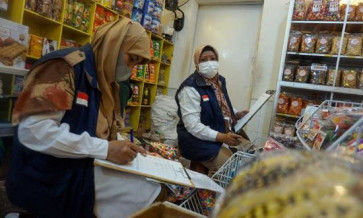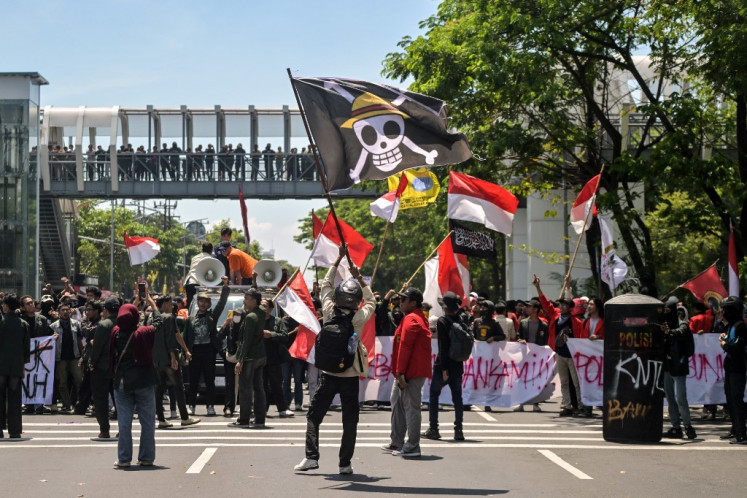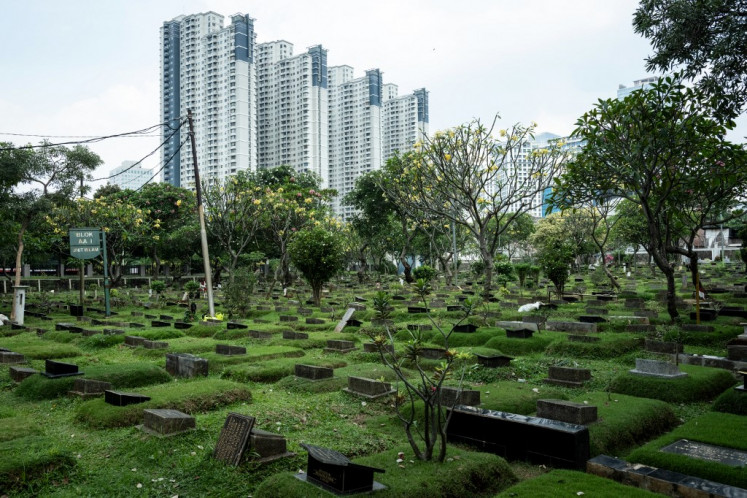Popular Reads
Top Results
Can't find what you're looking for?
View all search resultsPopular Reads
Top Results
Can't find what you're looking for?
View all search resultsAsia roadmap on ocean food security drafted
Asia plays an important role in providing food from the ocean and as such should actively manage the seas
Change text size
Gift Premium Articles
to Anyone
A
sia plays an important role in providing food from the ocean and as such should actively manage the seas.
To create focus on this, the Asia roadmap for food security from the oceans is being drafted at the Asia Conference on Oceans, Food Security and Blue Growth 2013, which has been underway at the Grand Hyatt Hotel in Nusa Dua since Tuesday.
'This conference will be significant for Asia in addressing food security from the oceans through increased ocean sustainability. The outcomes of this conference will be important input for the global oceans summit in The Hague [The Netherlands] in September 2013,' Sharif Cicip Sutardjo, Maritime Affairs and Fisheries Minister, said at the opening ceremony of the three-day conference.
Asia's oceans have an important role not only environmentally but also in the provision of seafood. 'Asian seas play an important role in providing goods, services and transport for world trade. Thus, this conference will draw up the Asia roadmap, which will reshape this region's future contribution to the world,' Sharif said.
Sharif added that the future role of oceans in Asia would contribute significantly to supporting and addressing food security and economic growth.
'Ocean-derived renewable and non-renewable resources in Asia provide high economic potential and include marine minerals, gas and energy, as well as an abundant biodiversity of marine life and aquaculture,' Sharif added.
As the largest archipelagic nation, he said, Indonesia was strongly committed to continue its support of the oceans and marine life as an engine of world economic growth, raising the role of sustainable oceans and enhancing the oceans' role in addressing food security regionally and globally.
The Asia roadmap, he said, was in line with the Indonesian government's interest in bolstering blue economy development based on marine and fisheries resources. 'The government realizes the importance of marine and fisheries resources as a driving force for development, poverty reduction, carbon emission absorption, optimizing environmental services and the acceleration of marine and fisheries industrialization in the frame of a blue economy,' Sharif said.
In order to encourage marine and fisheries investment to support the blue economy, the Indonesian government has issued policies to encourage investment, facilitate mediation and reduce barriers for investors in the marine and fisheries sector.
Juergen Voegele, director of agriculture and environment services at the World Bank, said that the World Bank fully supported the conference.
'We are really grateful that all of us could come together, to share ideas, share our vision and experiences and move to act on the agenda of agriculture food security and sustainable growth going forward.'
Asia contributed 39 percent of total global fisheries exports in 2011, valued at US$49.7 billion.
In 2012, Indonesia exported fisheries produce worth $3.9 billion, an increase from the $3.5 billion in 2011.










